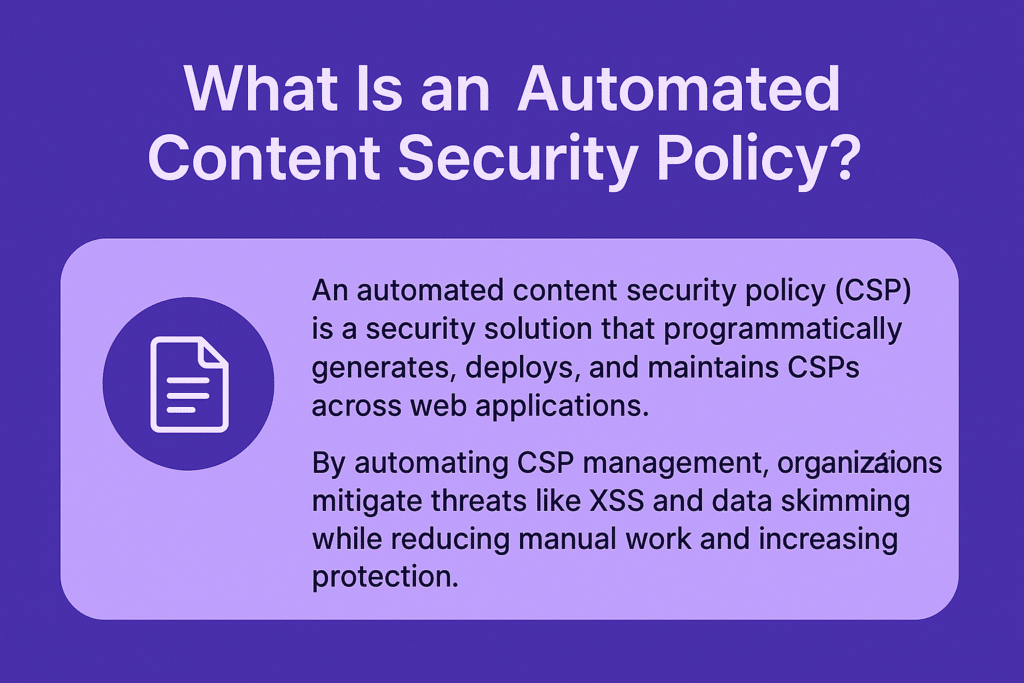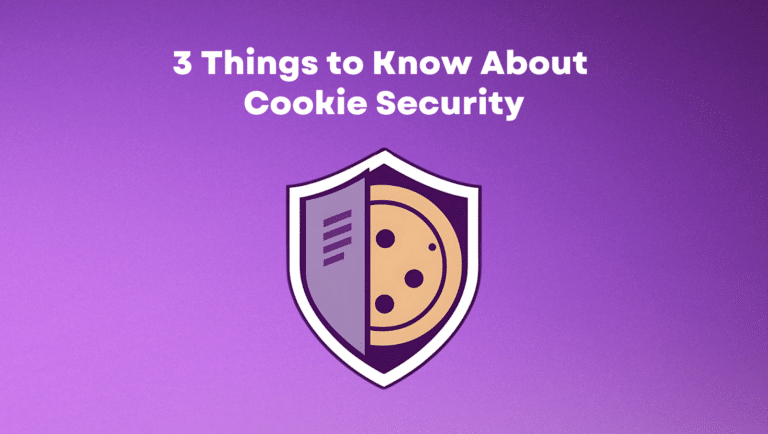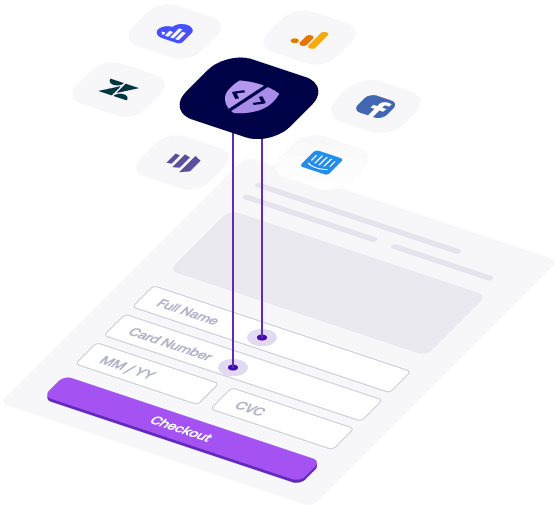TL;DR
- An automated content security policy (CSP) is a security solution that programmatically generates, deploys, and maintains CSPs across web applications.
- By automating CSP management, organizations mitigate threats like XSS and data skimming while reducing manual work and increasing protection.

Introduction
For security teams, developers, and compliance officers, managing CSPs manually across multiple web properties is both time-consuming and error-prone.
As web applications grow more dynamic and reliant on third-party scripts, manual CSP approaches struggle to keep up.
This guide explores what automated CSPs are, their benefits, implementation best practices, and how Feroot’s DomainGuard simplifies CSP automation.
What Is an Automated Content Security Policy?
A Content Security Policy (CSP) is a browser-enforced security standard that limits the sources from which a web page can load content, helping prevent cross-site scripting (XSS) and data injection attacks.
An automated CSP solution:
- Crawls websites to detect all loaded scripts and assets
- Generates tailored CSPs based on observed behavior
- Deploys those policies across domains from a centralized system
- Monitors and adjusts policies based on violations or changes in site behavior
This reduces the risk of misconfigurations and ensures policies stay current with evolving web content.
Why Automate CSP Management?
Manual CSP management is difficult and often ineffective due to:
- Complexity: Large volumes of third-party code make CSPs difficult to maintain
- Dynamism: Frequent website updates break static CSPs
- Time Burden: Auditing and tuning CSPs manually is resource-intensive
Automation offers key advantages:
- Real-time adaptation: Adjusts CSPs based on actual script behavior
- Less overhead: Frees security teams to focus on high-impact work
- Improved protection: Provides consistent coverage and reduces gaps in enforcement
How Feroot DomainGuard Automates CSPs
Feroot’s DomainGuard automates the entire CSP lifecycle with AI-driven insight and real-time monitoring.
It includes:
- Discovery: Scans web pages to detect all first- and third-party scripts
- Policy Generation: Builds CSPs aligned to observed assets and behaviors
- Deployment: Applies and updates policies across all connected properties
- Monitoring & Alerts: Tracks violations and offers actionable recommendations
DomainGuard helps organizations deploy enforceable CSPs that dynamically evolve with their applications. It’s particularly useful for teams managing complex environments or seeking to meet compliance frameworks like PCI DSS and HIPAA.
Real-World Use Cases
- E-commerce: Prevent unauthorized scripts on checkout pages and protect customer data
- Healthcare: Enforce strict CSPs to guard protected health information (PHI)
- Finance: Secure sensitive workflows from client-side threats like formjacking or clickjacking
Best Practices for Implementing Automated CSPs
- Start in Report-Only Mode: Detect issues before enforcing
- Review Violation Logs Regularly: Use them to fine-tune CSP rules
- Integrate with Existing Systems: Ensure CSP solutions work with current security stack
- Train Dev Teams: Help engineers understand CSPs and how their code is affected
FAQ
What is a Content Security Policy (CSP)?
A CSP is a web security standard that restricts the sources a page can load content from to prevent code injection and data theft.
Why automate CSPs?
Because manual management is error-prone and time-consuming, automation ensures your policies are always up-to-date and effective.
How does DomainGuard help?
It discovers, generates, and deploys CSPs automatically, then monitors violations and adjusts based on changes in your web environment.
Does this support compliance?
Yes. Automated CSPs help support requirements under PCI DSS, HIPAA, and other frameworks focused on data security.


